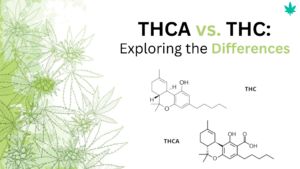Understanding Medical Cannabis
Medical cannabis involves the use of cannabis and its components, primarily THC and CBD, to treat medical conditions. The plant contains hundreds of compounds known as cannabinoids, each with unique effects. Over the years, different cannabis strains have been developed to enhance specific therapeutic benefits, catering to a wide range of medical needs.
Tip: Always carry your identification when visiting a marijuana dispensary near you to prove your age.
Long-Term Benefits of Medical Cannabis
- Chronic Pain Management: One of the most well-documented benefits of medical cannabis is its ability to manage chronic pain. Certain cannabis strains, especially those high in CBD, have shown significant efficacy in reducing pain without the addictive properties of opioids. Over the long term, this can improve quality of life and reduce reliance on more harmful painkillers.
- Chronic Pain Management: One of the most well-documented benefits of medical cannabis is its ability to manage chronic pain. Certain cannabis strains, especially those high in CBD, have shown significant efficacy in reducing pain without the addictive properties of opioids. Over the long term, this can improve quality of life and reduce reliance on more harmful painkillers.
- Neuroprotective Properties: Emerging research suggests that cannabinoids might have neuroprotective properties, potentially benefiting conditions like Alzheimer’s and Parkinson’s disease. While more long-term studies are needed, early findings are promising, indicating that medical cannabis could play a role in managing neurodegenerative diseases.
Potential Long-Term Risks of Medical Cannabis
- Cognitive Impairments: Long-term use of cannabis, especially strains high in THC, can affect cognitive functions. Some studies indicate that prolonged use may impact memory, attention, and decision-making skills. However, these effects vary widely among individuals and depend on the frequency and quantity of cannabis use.
- Dependence and Withdrawal: Although medical cannabis is generally considered less addictive than substances like opioids or alcohol, there is still a risk of dependence. Regular users might experience withdrawal symptoms such as irritability, sleep disturbances, and mood swings upon cessation. Using cannabis responsibly and under medical supervision can mitigate these risks.
- Respiratory Issues: Smoking cannabis, much like smoking tobacco, can lead to respiratory issues over time. However, this risk can be mitigated by using alternative consumption methods such as edibles, tinctures, or vaporizers, which do not involve inhaling smoke.
Best Weed Strains for Medical Use
- ACDC: High in CBD, this strain is known for its pain-relieving properties without the psychoactive effects.
- Northern Lights: This Indica strain is renowned for its potent pain-relief and relaxation effects.
- Harlequin: A balanced strain with a high CBD content, ideal for reducing anxiety and promoting a calm state.
- Blue Dream: A hybrid strain that offers a gentle cerebral high while alleviating stress and anxiety.
- Granddaddy Purple: Known for its sedative effects, this Indica strain is perfect for those struggling with insomnia.
- Cannatonic: With a balanced CBD to THC ratio, this strain helps relax the mind and body, promoting better sleep.
- Charlotte’s Web: Famous for its high CBD content, this strain is used to manage symptoms of epilepsy and other neurodegenerative conditions
- Ringo’s Gift: A hybrid strain high in CBD, offering neuroprotective benefits and helping to manage various neurological conditions.
Weed Strains Guide for Safe Use
To maximize the benefits of medical cannabis while minimizing risks, consider the following guidelines:
Start Low, Go Slow: Especially for new users, start with low doses and gradually increase until the desired effects are achieved. This approach helps minimize the risk of adverse effects.
Monitor Your Health: Regularly monitor your physical and mental health. Keep track of any changes or side effects and discuss them with your healthcare provider.
Choose the Right Consumption Method: To avoid respiratory issues, consider non-smoking methods such as edibles, oils, or vaporizers.
Stay Informed: Stay updated on the latest research and developments in medical cannabis. This knowledge will help you make informed decisions about your treatment plan.
Frequently Asked Questions
Medical cannabis refers to the use of cannabis and its compounds to treat or manage medical conditions and symptoms.
It can provide sustained relief from chronic pain, reduce inflammation, manage symptoms of neurological disorders, and improve quality of life for patients with certain conditions.
Yes, Can
Possible risks include dependency, cognitive impairment, mental health issues like anxiety or depression, and respiratory issues if smoked.
nabis Sativa Seed Oil is generally well-tolerated by all skin types, including sensitive and acne-prone skin. Its lightweight texture makes it suitable for oily skin, while its moisturizing properties benefit dry and mature skin.
Long-term use may increase the risk of mental health issues, particularly in individuals predisposed to such conditions.
Yes, there is a potential for dependency, especially with high-THC strains.




